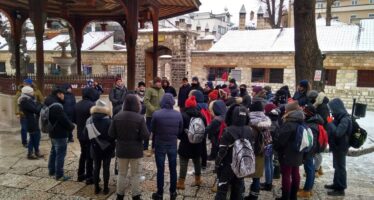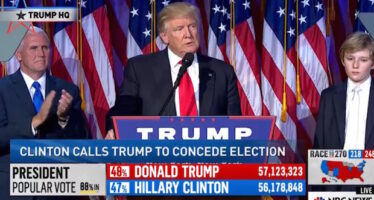Turkey-EU talks moving at snail’s pace in 5th year
![]()
FULYA ÖZERKAN
ANKARA – Hürriyet Daily News Although both Croatia and Turkey opened accession talks with the EU on the same date five years ago, Ankara’s progress has been rather slow due to Cyprus-related disputes and the political blockade created by France and Germany. The Turkish government cites double standards but vows it will not make concessions on its membership objective

The start of talks is our objective, but undoubtedly, it is not our final goal, says Turkey’s chief negotiator Ba???.
Five years after it launched formal accession talks with the European Union, Turkey is lagging far behind fellow candidate Croatia – which has concluded two-thirds of the negotiations – though officials caution against comparing the two.
“Comparing the two countries’ EU [accession] processes would lead to a misleading result. There are different scales,” Burak Özügergin, Turkey’s ambassador to Zagreb, told the Hürriyet Daily News & Economic Review on Sunday.
Turkey, with its 76.8 million people, and Croatia, a country of 4.4 million people, began membership negotiations with the European Union simultaneously on Oct. 3, 2005. Ankara has thus far opened just 13 out of 35 policy chapters, which all EU candidate nations must successfully negotiate prior to membership. Zagreb has meanwhile closed 22 out of 33 chapters and hopes to complete its talks in the first half of 2011 and join the bloc in 2012.
“In the first two quarters of this year, Turkey’s economy grew by 11 percent and if every year continues along these lines, the country will grow by the equivalent of one Croatia every year,” Özügergin said, while congratulating Croatia on its progress.
“We welcome the progress made by Croatia on its path to the EU, both through its own efforts and the help of the EU,” he added. “A friendly country is approaching accession.”
Turkey’s entry has been hindered by the slow pace of reforms and Ankara’s refusal to open its ports to shipping from EU member Greek Cyprus, among other issues. Turkish officials have openly complained about double standards, warning the EU not to let Greek Cyprus hijack Europe’s strategic interests. Turkey, a NATO member, is a key transit route for energy from Central Asia to Europe and its membership process provides a strong anchor for financial and political stability.
“Turkey’s entry into the EU will be different. Turkey is handling the matter on its own,” one Turkish official told the Daily News.
Analysts say Turkey’s accession will take years; even under the most optimistic scenario, it will not be able to join the European bloc before 2013. Stiff opposition from Germany and France has also been blamed for the slow pace of talks.
“Despite attempts to prevent the technical negotiating process through political games no other candidate country has ever encountered so far, we will not make concessions on our determination,” Egemen Ba???, Turkey’s chief negotiator for EU talks, said in a written message Sunday.
In his statement, Ba??? described Oct. 3, 2005, as one of the turning points in Turkey’s European journey, but said the government is wary of the current situation.
“We tell our European counterparts at every occasion that the current situation is not sustainable and Turkey’s patience is being tested,” Ba??? said. “The start of talks was our objective, but undoubtedly, it is not our final goal; our final goal is full membership.”
Current picture not promising
Turkey’s path to joining the EU will face a key test later this year as Brussels reviews Ankara’s performance in complying with the Ankara protocol, under which Turkey is obliged to open its ports to Greek Cypriot ships and planes. Turkey opposes abiding by the protocol unless the EU lifts an embargo imposed on northern Cyprus.
Brussels froze eight chapters in response to Ankara’s noncompliance in December 2006. These chapters deal with the free movement of goods; the rights of establishment and the freedom to provide services; financial services; fisheries; transport policy; the customs union; external relations; and agriculture and rural development.
Greek Cyprus is also unilaterally blocking six other chapters, those on energy; education and culture; justice, freedom and security; the judiciary and fundamental rights; foreign security and defense policy; and the free movement of workers.
The various blockades leave Turkey only able to open three chapters: competition policy, public procurement and social policy and employment.
The continued German-French resistance poses another stumbling block that Turkey is trying to overcome. The issue is expected to top the agenda when Turkish Prime Minister Recep Tayyip Erdo?an meets German Chancellor Angela Merkel, whose Christian Democratic Union has offered a “privileged partnership” for Ankara, a status that falls short of full EU membership.
French President Nicolas Sarkozy is also expected to visit Turkey at the end of November. France is blocking five chapters – on economic and monetary policy; regional policy and the coordination of structural instruments; agriculture and rural development; financial and budgetary provisions; and institutions – arguing that their opening would lead to full membership.
Addressing concerns about reforms, the Turkish government is meanwhile trying to harmonize its laws with EU legislation following the approval of a package of constitutional amendments in the Sept. 12 referendum. Parliament is expected to pass a series of laws in the new legislative year.
Related Articles
Bihac, on the border of Europe – Part One
![]()
A delegation from Pordenone, led by social cooperative Noncello, has traveled to Bihac, Bosnia, to monitor the situation of refugees on a route which is not on the media spotlight
Gerry Adams: The people of the USA have spoken – now we have to work with President Trump
![]()
DONALD TRUMP has had a “stunning victory” in his campaign to become President of the USA, Gerry Adams said, “and we have to work with him”
Germany to Pay $5,000 Each for Civilians Killed in Kunduz Attack
![]()
Military Won’t Admit Guilt and Insists Payment Is Voluntary After several months of negotiations, the




